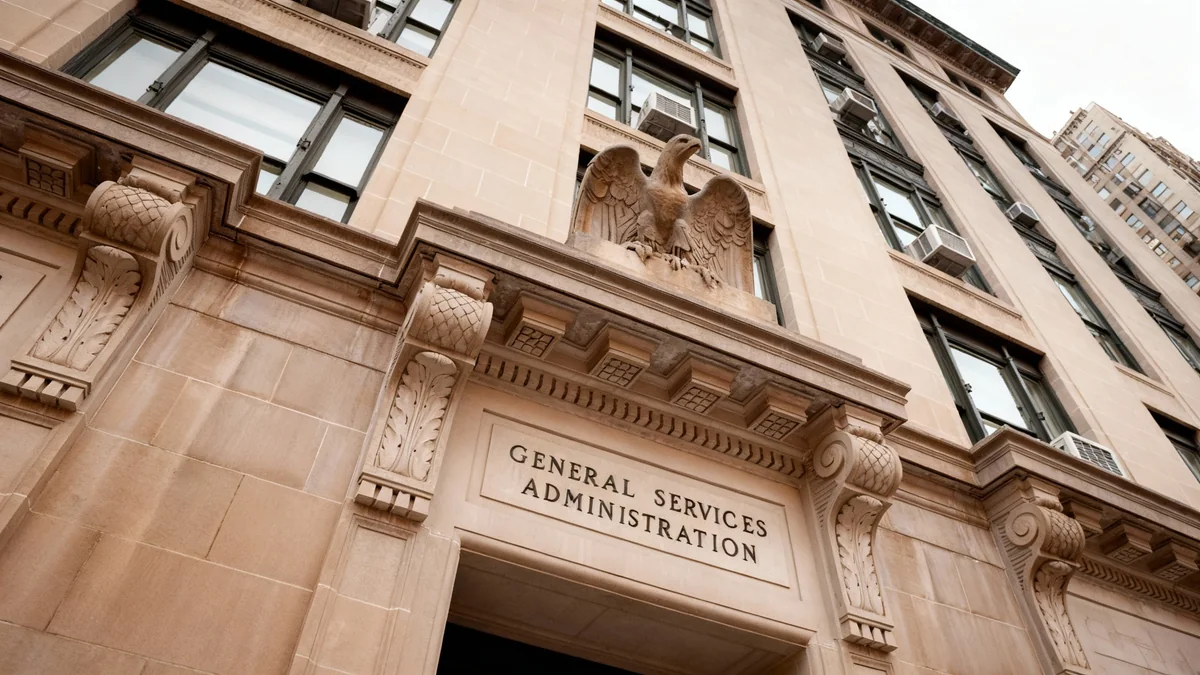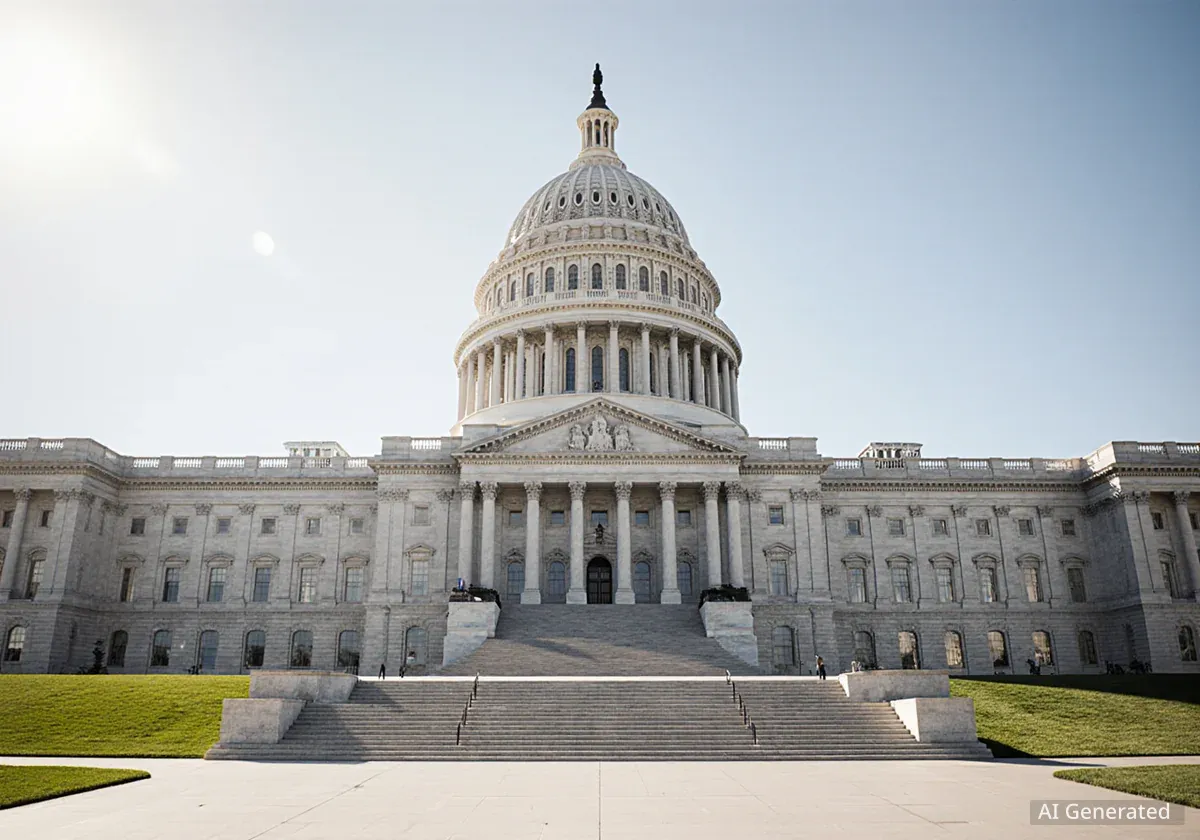Edward Forst, the nominee to lead the General Services Administration (GSA), outlined an ambitious agenda focused on government efficiency during his confirmation hearing before the Senate Homeland Security and Governmental Affairs Committee. A former CEO of commercial real estate firm Cushman & Wakefield, Forst detailed four key priorities: shrinking the federal real estate portfolio, streamlining government purchasing, increasing small business contracts, and driving a government-wide technology transformation.
Forst positioned the GSA as being at the “tip of the spear” in the administration's efforts to modernize how the federal government operates, emphasizing significant changes to property management and the adoption of new technologies like artificial intelligence.
Key Takeaways
- Edward Forst, a former real estate CEO, is President Trump's nominee for GSA Administrator.
- His four main priorities are real estate reduction, procurement reform, small business support, and technology modernization.
- Forst plans to address a massive federal property portfolio of over 363 million square feet and a $24 billion deferred maintenance backlog.
- He faced questions regarding a government AI contract with Elon Musk's company, xAI, promising a full review of the selection process.
Shrinking the Government's Real Estate Footprint
A central pillar of Forst's plan involves a dramatic rethinking of the federal government's vast property holdings. He stressed the need to aggressively manage the portfolio, which is one of the largest in the world.
Federal Property by the Numbers
- Total Space: Over 363 million square feet
- Number of Buildings: More than 8,300 owned and leased properties
- Deferred Maintenance: Approximately $24 billion
- Urgent Repairs: An estimated $6 billion of the backlog is considered critical
During the hearing, Forst stated that the GSA must take a hard look at its assets. “GSA must examine underused and outdated properties, renegotiate leases where possible, and consolidate space to reflect how federal agencies actually work today,” he told the committee. This approach aligns with the administration's broader goal of reducing the federal portfolio, which has previously aimed for cuts as high as 50%.
The issue of deferred maintenance looms large over these plans. With a backlog totaling $24 billion, Forst identified $6 billion in projects as “urgently needed.” Addressing these critical repairs while simultaneously consolidating and selling off properties will be a significant challenge for the agency if he is confirmed.
What is the GSA?
The General Services Administration is often called the federal government's "landlord" and "procurer." It manages federal buildings, oversees the acquisition of goods and services for government agencies, and helps develop government-wide policies. Its administrator plays a key role in the operational efficiency of the entire federal government.
Unifying a Fractured Procurement System
Beyond real estate, Forst targeted the complex and often inefficient system the government uses to buy goods and services. He described the current state of federal acquisition as a “patchwork of disconnected transactions” and called for a more centralized, enterprise-level approach.
“The federal government’s acquisition system must operate as a unified enterprise... When procurement works intelligently, every hardworking taxpayer wins.”
His vision includes simplifying regulations and removing what he called “unnecessary barriers” that can prevent agencies from getting what they need efficiently. This reform is also intended to open more doors for small businesses to compete for federal contracts, another of his stated priorities.
“I am confident the Federal Acquisition Service team is prepared to fully embrace this once in a generation opportunity that will help agencies improve their mission delivery,” Forst added, signaling his intent to empower the GSA's procurement arm to lead the charge on these reforms.
Leading a Government-Wide Tech Transformation
Forst identified technology modernization as a “necessity” for the federal government, positioning the GSA as a central player in this effort. He specifically mentioned the agency's role in implementing the Trump Administration’s AI Action Plan, a strategy designed to integrate artificial intelligence across various government functions.
The goal is to leverage technology to improve service delivery, increase efficiency, and reduce operational costs. This involves not only adopting new tools but also ensuring that the government's underlying IT infrastructure is secure and up-to-date. Forst's background in the private sector, where technology adoption is often faster, suggests he may bring a sense of urgency to this task.
Scrutiny Over AI Contract with xAI
Forst’s push for technology adoption was met with pointed questions from senators, particularly regarding a controversial contract with xAI, an artificial intelligence company owned by Elon Musk. The contract involves the use of its Grok AI platform for government purposes.
Several nonprofit groups have raised alarms about the platform, citing concerns over racist and inflammatory responses generated by the AI. These groups have urged the administration to pause the contract, arguing the technology is not suitable for government decision-making.
Committee Ranking Member Gary Peters (D-MI) pressed Forst on the issue, asking him to investigate the selection process. Forst committed to a thorough review if confirmed.
“I think my commitment to you is I will meet with the team, and I’ll understand the process used in selecting them, and I’ll make sure that we have all the facts, and if there was incompleteness to the process, that will rectify that,” Forst responded.
This exchange highlights the challenges facing government leaders as they navigate the rapid advancements and potential pitfalls of artificial intelligence. If confirmed, Forst would replace acting GSA Administrator Michael Rigas and be immediately tasked with balancing the push for innovation with the need for responsible and ethical implementation.





